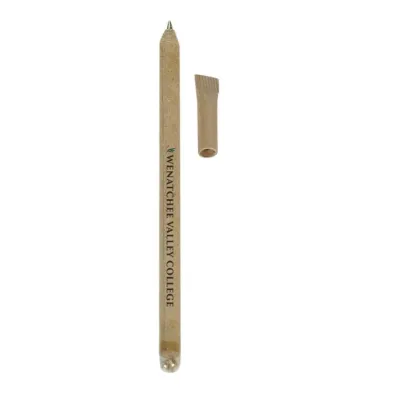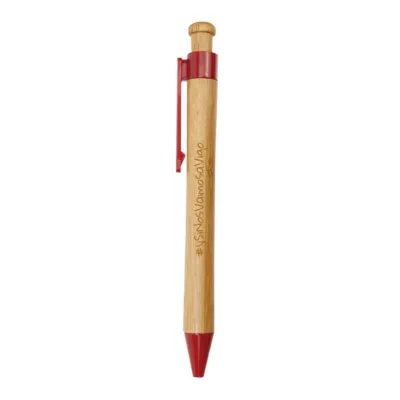Supply Chain Transparency- Ensuring Ethical Practices at Elzit
Supply Chain Transparency: Ensuring Ethical Practices at Elzit
Supply chain transparency is paramount in ensuring ethical practices and sustainability within industries. In the context of Elzit, a leading player in plastic bottle production, ensuring ethical practices throughout its supply chain is a fundamental aspect of its commitment to environmental stewardship. This essay explores how Elzit achieves supply chain transparency and promotes ethical practices to uphold its sustainability goals.
Understanding Supply Chain Transparency
Supply chain transparency refers to the visibility and accountability of all stages of the supply chain, from sourcing raw materials to delivering final products to consumers. It involves disclosing information about suppliers, production processes, and environmental and social impacts to stakeholders, including customers, investors, and regulatory authorities.
Importance of Ethical Practices in Supply Chains
Ethical practices in supply chains are essential for safeguarding human rights, protecting the environment, and promoting responsible business conduct. By adhering to ethical standards, companies can mitigate risks such as labor exploitation, environmental degradation, and reputational damage while fostering trust and accountability among stakeholders.
Ensuring Ethical Practices at Elzit
Elzit employs several strategies and initiatives to ensure ethical practices throughout its supply chain:
Supplier Audits and Assessments: Elzit conducts regular audits and assessments of its suppliers to evaluate their compliance with ethical and environmental standards. This includes assessing factors such as labor practices, worker safety, environmental impact, and regulatory compliance.
Supplier Code of Conduct: Elzit has established a Supplier Code of Conduct that outlines the company's expectations regarding ethical behavior, labor standards, environmental protection, and human rights. Suppliers are required to adhere to these standards as a condition of doing business with Elzit.
Transparency and Disclosure: Elzit promotes transparency and disclosure by providing stakeholders with access to information about its supply chain practices, including supplier relationships, sourcing practices, and sustainability initiatives. This transparency fosters trust and accountability among stakeholders and enables informed decision-making.
Collaboration and Engagement: Elzit collaborates with suppliers, industry peers, and stakeholders to address common challenges and promote ethical practices throughout the supply chain. This includes participating in industry initiatives, sharing best practices, and engaging in dialogue with stakeholders on sustainability issues.
Continuous Improvement: Elzit is committed to continuous improvement in supply chain transparency and ethical practices. The company regularly reviews and updates its policies and procedures to reflect evolving standards and best practices, and it seeks feedback from stakeholders to identify areas for improvement.
Benefits of Ethical Practices in Supply Chains
By ensuring ethical practices throughout its supply chain, Elzit realizes several benefits:
Risk Mitigation: Ethical practices help mitigate risks such as supply chain disruptions, legal liabilities, and reputational damage associated with labor violations, environmental harm, or unethical conduct.
Brand Reputation: Ethical supply chain practices enhance Elzit's brand reputation and credibility among customers, investors, and other stakeholders, leading to increased trust and loyalty.
Compliance and Accountability: Adhering to ethical standards ensures compliance with regulations and industry norms while promoting accountability and responsible business conduct.
Long-Term Sustainability: Ethical practices contribute to the long-term sustainability of Elzit's business by fostering positive relationships with suppliers, reducing operational risks, and enhancing stakeholder trust and loyalty.
Labor Standards and Worker Welfare: Elzit places a strong emphasis on upholding labor standards and ensuring the welfare of workers throughout its supply chain. This includes ensuring fair wages, safe working conditions, and respect for workers' rights in accordance with international labor standards such as those outlined by the International Labour Organization (ILO). Elzit conducts regular assessments and audits of supplier facilities to monitor compliance with labor regulations and identify areas for improvement.
Environmental Protection and Sustainability: In addition to labor considerations, Elzit prioritizes environmental protection and sustainability within its supply chain. The company works closely with suppliers to minimize environmental impact, reduce resource consumption, and promote sustainable practices such as energy efficiency, waste reduction, and pollution prevention. Elzit encourages suppliers to adopt environmentally friendly processes and materials, invest in renewable energy, and implement recycling and waste management initiatives.
Ethical Sourcing and Responsible Procurement: Elzit practices ethical sourcing and responsible procurement by selecting suppliers that adhere to ethical standards and demonstrate a commitment to sustainability and social responsibility. The company conducts due diligence assessments to evaluate potential suppliers based on criteria such as ethical conduct, environmental performance, and compliance with relevant regulations and standards. Elzit prioritizes suppliers that share its values and principles, fostering long-term partnerships built on trust and mutual respect.
Transparency and Accountability: Transparency and accountability are central to Elzit's approach to supply chain management. The company discloses information about its supply chain practices, policies, and performance to stakeholders through annual sustainability reports, public statements, and stakeholder engagement initiatives. Elzit maintains open lines of communication with stakeholders and encourages feedback and dialogue on supply chain issues, allowing for greater transparency and accountability across its operations.
Training and Capacity Building: Elzit invests in training and capacity building initiatives to empower suppliers and workers with the knowledge and skills needed to uphold ethical standards and promote sustainability. The company provides training on topics such as labor rights, environmental management, health and safety, and ethical business practices, equipping suppliers and workers with the tools and resources to implement responsible practices within their organizations.
Impact Assessment and Improvement
Elzit conducts impact assessments to evaluate the effectiveness of its efforts to ensure ethical practices in its supply chain. The company monitors key performance indicators related to labor standards, environmental performance, and social impact to assess progress and identify areas for improvement. Elzit collaborates with suppliers and stakeholders to implement corrective actions, address root causes of issues, and continuously improve its supply chain practices.
Supply chain transparency and ethical practices lie at the heart of Elzit's operations, underscoring its commitment to sustainability and responsible business conduct. Elzit, a prominent figure in plastic bottle production, prioritizes supplier audits and assessments to ensure adherence to ethical and environmental standards. Through regular evaluations of labor practices, worker safety, and environmental impact, Elzit maintains accountability across its supply chain, fostering a culture of transparency and responsibility.
Central to Elzit's approach is the establishment of a robust Supplier Code of Conduct, mandating ethical behavior, labor standards, and environmental protection. By enforcing these standards as prerequisites for collaboration, Elzit upholds its commitment to ethical sourcing and responsible procurement. Transparency and disclosure further characterize Elzit's operations, as the company shares information on supply chain practices and sustainability initiatives, fostering trust and enabling stakeholders to make informed decisions.
Moreover, Elzit emphasizes collaboration and continuous improvement, engaging with suppliers, industry peers, and stakeholders to address challenges collectively. Through dialogue and shared best practices, Elzit drives positive change within the plastics industry, mitigating risks, enhancing brand reputation, and contributing to long-term sustainability. As Elzit evolves and innovates, its dedication to promoting ethical practices remains unwavering, positioning the company as a leader in supply chain transparency and sustainability efforts.
Conclusion
Supply chain transparency and ethical practices are integral to Elzit's commitment to environmental stewardship and sustainability. By ensuring transparency, accountability, and collaboration throughout its supply chain, Elzit upholds ethical standards, mitigates risks, and fosters trust and accountability among stakeholders. As the company continues to evolve and innovate, it remains dedicated to promoting ethical practices and driving positive change in the global plastics industry.

























